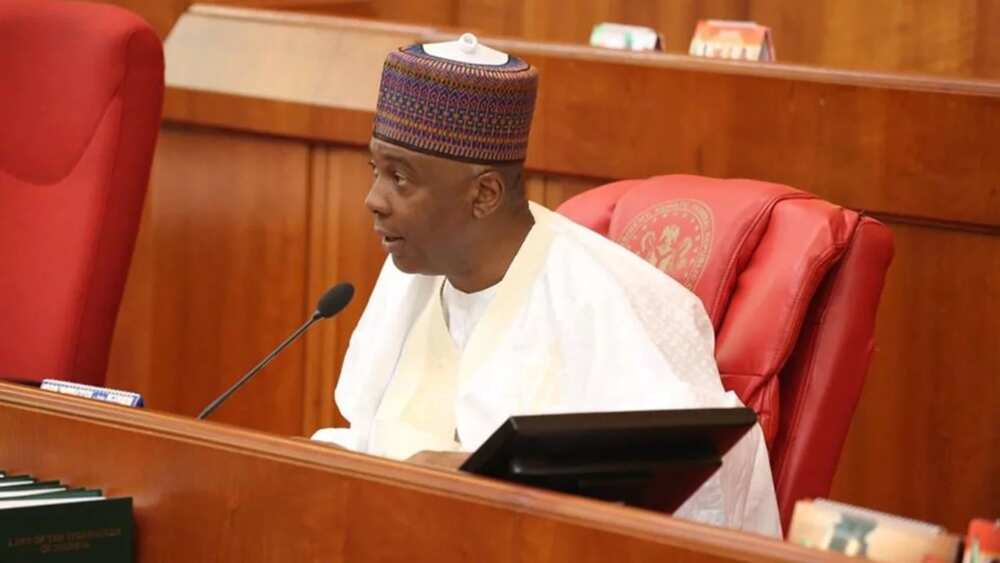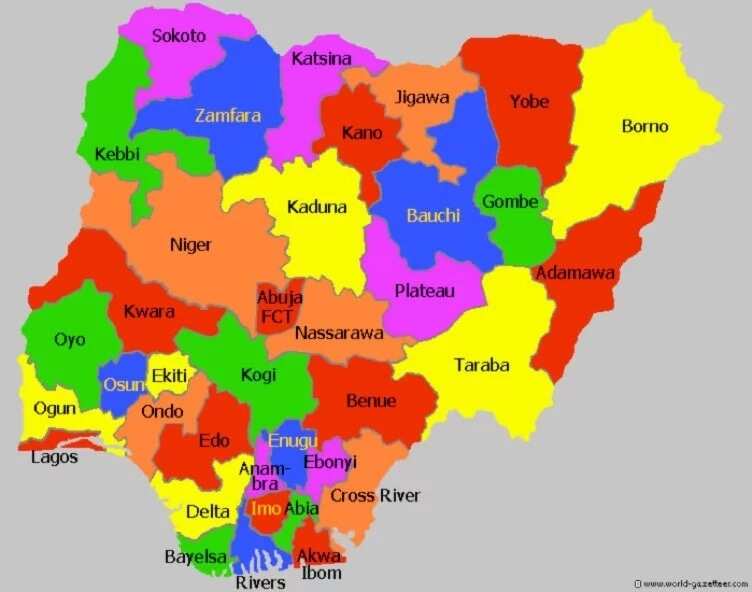Brief history of local government in Nigeria
Nigerian local government system has been put through different challenges. It has gone from different pre-colonial political systems, such as the Igbo, Hausa and Yoruba political systems, to the modern system of local government; it has also gone through a lot of reforms to become what we know now. Let's learn more about its most important stages from this brief history of local governments in Nigeria.

Local governments in Nigeria
The local governments serve as local hubs of the central federal government. These local governments do not have a lot of rights and most of its decisions are made according to the central government's rules. Their abilities are usually very restricted by the central government. The current number of local government in Nigeria is 774.
Local administration in Nigeria has passed the four distinct stages of development. The first epoch took place from 1946 to 1966, the second epoch lasted from 1967 to 1976, and the final stage started from 1976 and exists till date.
READ ALSO: History of education in Nigeria

The 1976 Guidelines for Local Government is the most important document in the local government. Although, after the adoption of that document, eight more have been signed;
- The 1979 Constitution of the Federal Republic of Nigeria;
- the 1984 Dasuki Report on the Nigerian Local Government system;
- the 1988 Civil Service Reforms in the Local Government system;
- the 1989 Constitution of the Federal Republic of Nigeria;
- the 1992 Handbook on Local Government Administration;
- the 1989 Constitution of the Federal Republic of Nigeria;
- the 1999 Constitution of the Federal Republic of Nigeria;
- the 2003 Review of Local Government Councils in Nigeria.

The 1976 local government reforms guidelines set the path for further Nigerian local government’s development.
Three basic reasons for establishing local government autonomy in Nigeria:
1. To develop activities and make appropriate services responsive to local wishes and initiatives by developing such services in local representative’s governmental bodies.
2. To bring the model of democratic self- governance and facilitate the leadership potential of Nigerians on local levels.
3. To gather human and material resources and involve them in their local government. It is important to provide a two-way channel of communication between both state and local governments.
The beginning of local governments in Nigeria
A long time ago, Nigeria was ruled by the colonial government and the local government was called the Administration system or Native Authority.
It was a system consisting of unconditional colonial ruling classes or “traditional institutions of chiefs and other traditional rulers of the natives under the supervision of British Administrative Officer”. But this kind of local government system was not sufficient because it consisted of only chiefs and rulers. There was no chance for local people to be elected or to have their voice heard. It is obvious that not everything was perfect in the system of local administration, and at that time the existing governing structure was only the remains of colonialism.

However, the leaders decided to create a new system which would suit the interest of local people but kept failing at achieving this or satisfying the interest of the people. For example, the Native Authority leaders were expected to be able to levy and collect tax for the salaries of the chiefs and other officials and services of the authorities, but not all local communities got accustomed to this new rule, therefore they also had their own traditional ways of carrying out such services.
In short, the lack of Western education and modern approach to the ruling made the governance insufficient. The Native Authority system did not belong to legislators, executives or administrators systems. All rulers were just administrative couriers for the colonial officers.

Sole native local government autonomy in Nigeria
In 1946, the system of local government in Nigeria was changed to the Sole Native Authority System. As the Sole Native Authority System was put in action, Egba women all expressed their disgust, saying that this type of Sole Native Authority System hastened the marginalization of women and increased the gender imbalance in governing system.
In an attempt to defend the Sole Native Authority system’s principles, in 1947, the last colonial Secretary of State, Lord Creech-Jones stated: “The key to resolving the problems of African administration lay in the development of an efficient and democratic system of local government.”
The Nigerian constitution adopted in 1979
The reform implemented in 1976 and Nigerian constitution adopted in 1979 were still unable to solve the problem of traditional ruling in Nigeria. The financial instability and fragility of local government councils loosened their power and various functions performed by them. There were some cases where locals did not even know the councilors of local government councils when election time came up.
The local governmental structure in Nigeria suffered from various issues, which held back the local governments’ development.

The 1979 - 1983 phase of the fight for the local government administration system in Nigeria was quite productive. The state government tried to manage local government councils on spot but in fact, they only fought for the authority and influence of the local government councils. Moreover, some states even created a couple of local councils within the state.
The Buhari Administration was launched in December 1983 and lasted till August 1985. During the implementation of the Buhari program, the administration cut down the number of local government from 770 to 301. These 301 local councils were approved and defined by the Constitution. Although everything looked perfect on paper, the system did not work properly in reality. As a result of some inadequacies in the system, in 1984 the Federal Military Government organized the Government Review Committee with Alhaji Ibrahim Dasuki responsible for the investigation.

The Dasuki Report confirmed that the problem of local governments had been inherited from the 1976 local government reforms. The behavior and attitude of ruling officials did not change; therefore there was no system drawback, the failure was as a result of personal factors.
In 1986, the responsibility of deployment and employment of local government staff was handed to ministries of local government. As a result, the new local democracy tendencies started and the old attitude was dropped. However, even though the local government structure still existed, the federal government controlled the basis of local governments.

As at 1987, the cooperation between the states and local governments was still very tense. There was a need to enhance both citizenship participation and local level service; to achieve this, in March 1988, the federal government adopted some comprehensive reforms which aimed to reform the local government’s structure, finance and administration systems radically. These radical reforms helped to change the local government councils into effective centers of local development.
Despite the hope of brilliant development, the federal government suffered some failures. More states and local governments got created in 1987, but this resulted in structural changes in some communities and a refusal to support the new local councils.
The 1999 Constitution and local governments
In the last three decades, so many reforms have been adopted to make the local government systems better. Although there were some failures in the process of reforming the structure and functions of local governments, it still led to amazing changes in the entire system. It especially influenced the political structure and system of Nigeria.

Old military regimes were forgotten by locals and the new phase of local authority begun. The recognition of local government in Nigeria at the third tier level of government was enshrined in the 1989 and 1995 Constitutions. Just like the Constitution of 1979, the 1999 Constitution addressed important issues, such as the problem of local government system, the creation of new local governments, adjustments in the system and functions of local governments, public officials’ code of conduct, funding and financial support of local governments, and, finally, a list of local governments.

Presently Nigeria is divided into 36 states with one federal capital territory. These Nigerian states are also subdivided into 774 local government areas. These areas reflect the local development of the Nigerian federative system; the adoption of this federative system contributed to the distribution of authority on the local level. The local government areas have exact responsibilities, such as births or deaths registration, registration of marriages or divorces, maintenance or construction of roads, the collection of taxes and maintenance of public transport. The local government councils is a very democratic legislative body but still very connected to the federal government.
READ ALSO: History of entrepreneurship in Nigeria
Source: Legit.ng








